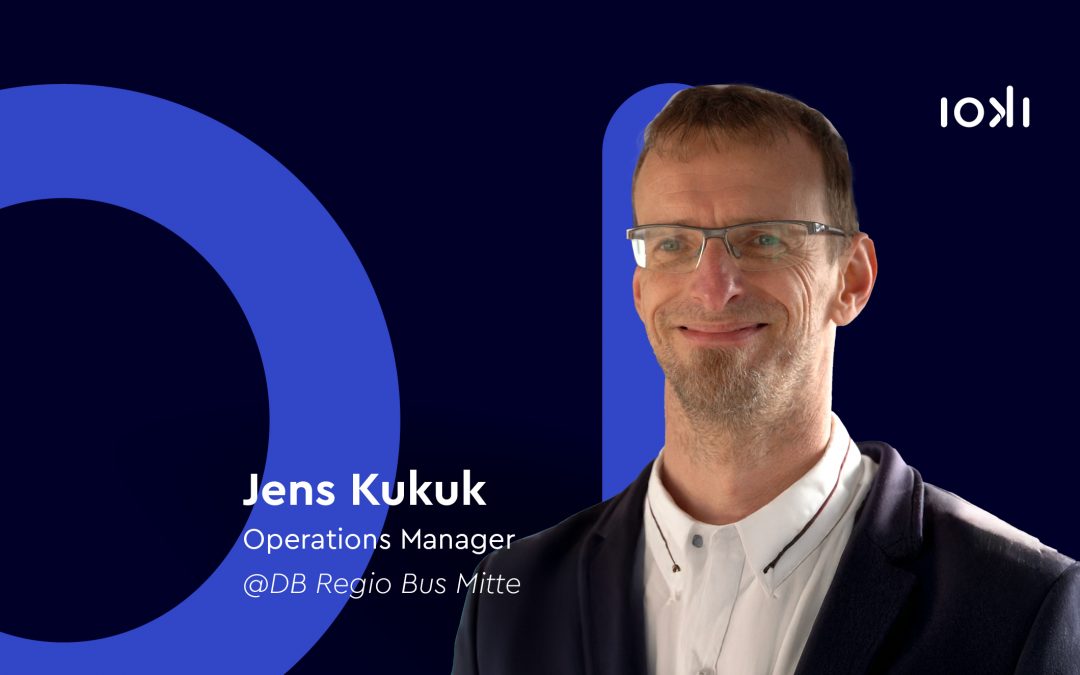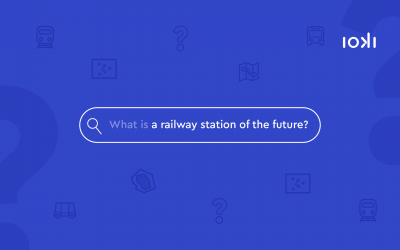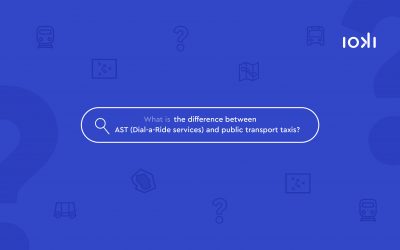First autonomous vehicle on German roads
Back in 2017, ioki already set a milestone in the field of autonomous driving. As the first company in Germany, ioki integrated an autonomously driving shuttle service into road traffic in Bad Birnbach. Silently, without a steering wheel or accelerator pedal, the shuttles have been taking their passengers from A to B for four years. The introduction of the service was not the only first within the project. A second milestone was the expansion of the service area: the shuttles no longer only take passengers from the town center to the local spa, but since October 2019 they have also connected the train station to the town center, two kilometers away, via a country road. Dr. Richard Lutz, Chairman of the Board of Management of Deutsche Bahn, sees the project as an achievement steeped in history: “We have demonstrated a pioneering spirit – as we did when the first railroad in Germany ran more than 180 years ago, back then between Nuremberg and Fürth. We are the first company in Germany to bring autonomous vehicles onto the road and into public transport.” The autonomous vehicles are provided by our project partner EasyMile.
From Bad Birnbach to Berlin
In Berlin, ioki tested the next evolutionary stage of autonomous shuttles in public transport in cooperation with the Berliner Verkehrsbetriebe (BVG). As part of the project, which was funded by the Berlin Senate, an On-Demand-Service was to be combined with autonomous vehicles for the first time. The “EUREF-Campus” in Berlin’s Schöneberg district, which sees itself as a symbol of Germany’s energy transition, was chosen as the test site. Once again, the vehicles were provided by the manufacturer EasyMile.
Seemeile project
As a next step, ioki and a total of eight project partners have brought the first highly automated minibus onto the public roads of a major German city under the project name “See-Meile”. From the Alt-Tegel subway station to the lakeside terraces on Lake Tegel and back, the shuttle service took its passengers along a route of about 1.2 kilometers. For five months, the project demonstrated that transport on public roads is possible and has a lot of potential: establishing autonomous shuttles can have a positive effect on service times, resource consumption and the costs of an operation.
Accompanying the “See-Meile” project, ioki conducted an acceptance study, which showed that there is also a very good response to autonomous shuttles on the consumer side. 88 percent of users would use the service again. In principle, a large number of users can well imagine autonomous vehicles as a fixed component of public transport.
Getting from A to B on demand with Ella, Vera and Anna
From test operation to passenger service: After several successful real-life labs, ioki is now establishing the next milestone in automated public transport. As part of the EVA-Shuttle research project (EVA = electric, networked, automated), autonomous, emission-free minibuses have been taking passengers from A to B in the Weiherfeld-Dammerstock district of Karlsruhe as needed since April 2021. The special feature here is that the vehicles move freely in regular road traffic, where they act autonomously and respond to pedestrians, cyclists and motorized transport. ioki is presenting a newly developed technical interface for the first time as part of the project, which enables the combination of On-Demand-Booking and autonomous driving – a first in the German transport landscape. The three vehicles, named “Ella,” “Vera” and “Anna,” have now entered public service as part of the project after an intensive testing period in the final project phase. Passengers can test the new mobility concept free of charge until the end of June.
In the future, ioki will continue to be at the forefront of bringing autonomous transport to the streets with strong partners – for a connected, digital and above all contemporary public transport system.



